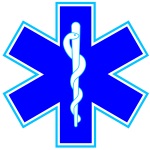Pleural Decompression: Difference between revisions
From Protocopedia
Created page with "==Section 9 - Procedure Guidelines== ===9.26 PLEURAL DECOMPRESSION=== '''INDICATIONS:''' * Chest decompression for relief of tension pneumothorax. '''EQUIPMENT:''' * 14 ga..." |
|||
| Line 19: | Line 19: | ||
'''PROCEDURE:''' | '''PROCEDURE:''' | ||
* Locate decompression site. | * Locate decompression site. | ||
** Identify the 2nd intercostal space in the mid-clavicular line on the same side as the pneumothorax. | ** Identify the 2nd intercostal space in the mid-clavicular line on the same side as the pneumothorax. '''''OR''''' | ||
OR | |||
** Identify the 5th intercostal space in the mid-axillary line on the same side as the pneumothorax. | ** Identify the 5th intercostal space in the mid-axillary line on the same side as the pneumothorax. | ||
* Prepare the site with an antiseptic swab: | * Prepare the site with an antiseptic swab: | ||
Revision as of 02:17, 5 February 2012
Section 9 - Procedure Guidelines
9.26 PLEURAL DECOMPRESSION
INDICATIONS:
- Chest decompression for relief of tension pneumothorax.
EQUIPMENT:
- 14 gauge 2 - 2.5 inch catheter over the needle.
- Sterile glove finger.
- Thread the #14 gauge catheter through the end of the glove finger from the inside.
- Tape.
- Sterile gauze pads.
- Antiseptic swabs.
- Occlusive dressing.
PROCEDURE:
- Locate decompression site.
- Identify the 2nd intercostal space in the mid-clavicular line on the same side as the pneumothorax. OR
- Identify the 5th intercostal space in the mid-axillary line on the same side as the pneumothorax.
- Prepare the site with an antiseptic swab:
- Firmly introduce catheter immediately above the distal rib of the site selected with a glove finger placed over the needle and catheter to serve as a flutter valve.
- Insert the catheter through the parietal pleura until air exits. It should exit under pressure.
- Advance catheter and remove needle.
- Secure the catheter taking care not to allow it to kink.
- Reassess lung sounds and patient condition.
- Dress area with Occlusive dressing then cover with sterile gauze pad.
- Flutter valve must be outside dressing and unobstructed.
- Assess breath sounds and respiratory status.
